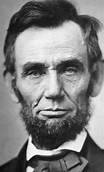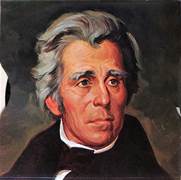Category Archives: History
Yuri Bezmenov: Deception Was My Job
I mentioned before that I included a descendant of Joseph Stalin in my book because I wanted to point out the evil of communism – an ideology that sits under the larger umbrella of totalitarianism, along with Nazism, fascism and centralized control in one form or another. Sometimes we call it collectivism. But it all means the same thing – powerful people controlling human beings by choking the money supply, creating big-government dependency, destroying individual initiative and creativity, forbidding the worship of God and — in the case of communism, Nazism, fascism — engaging in genocide as a way to weed out those deemed “unworthy” of living. For example,the millions of Jews, gays and handicapped brutally murdered under Adolf Hitler.
Until recently, the United States stood firm as a beacon of freedom, a country that upheld and respected the rights of individuals to pursue their own goals and dreams with limited government involvement – as outlined in the United States Constitution. During the Cold War, the Russian KGB was smart enough to realize that taking down the United States would mainly involve what they called “ideological subversion.” In fact, they were savvy enough to devote 85% of their budget to this effort and only 15% to actual weaponry. They knew long before most Americans did that culture drives politics.
Does this sound like crazy, right-wing conspiracy theory?
Then I highly recommend watching the video below from Yuri Bezmenov, a former KGB agent who defected to the United States.
I want to thank Kia Heavey, my book cover designer and author, for the tip about Bezmenov. Please watch the whole thing. And if you would like to see how Joseph Stalin’s descendant in 2412 atones for his many crimes against humanity, you can purchase my book here. Thank you.
Why ‘Honest Abe’ appears in Steps To Salvation
 Yesterday, I posted about President Andrew Jackson – a leader I admire for taking on the Bank of the United States and winning. Yet while he lived on earth as President of the United States, he rejected the idea of paper money in favor of the gold standard. This is something his soul acknowledges as wrong and misguided in Step Two in front of Ascended Masters Moses, Jesus and Mohammad, the other Advanced Souls, and the Salvation Twelve while calling forth President Abraham Lincoln:
Yesterday, I posted about President Andrew Jackson – a leader I admire for taking on the Bank of the United States and winning. Yet while he lived on earth as President of the United States, he rejected the idea of paper money in favor of the gold standard. This is something his soul acknowledges as wrong and misguided in Step Two in front of Ascended Masters Moses, Jesus and Mohammad, the other Advanced Souls, and the Salvation Twelve while calling forth President Abraham Lincoln:
“In spite of paying off the national debt and destroying the Bank of the United States, I was wrong about one very important monetary principle,” he admitted. “I wanted to abolish paper money and put the United States on the gold standard, which in retrospect was a terrible idea. I want to call upon former United States President Abraham Lincoln to explain why a paper money system is superior to all others.”
With that, he gestured to the man known in human life as Honest Abe and the Emancipator of the Slaves to join him in addressing the audience on the all-important topic of money and finance. Abraham Lincoln smiled and accepted the invitation. “Thank you, Mr. Jackson,” he acknowledged. Then turning to face the designated Salvation Twelve, he continued. “I must confess, although I am credited with freeing the slaves and ending a tragic period in United States history, in the beginning my main concern was the preservation of the Union. Centralized European bankers were still smarting over the fact that President Andrew Jackson had succeeded in destroying the Bank of the United States. Like America’s Founders he understood the inherent hazards of fractional reserve banking, centralized banking, and monetizing debt based on what he’d seen with the Bank of England, and what he’d learned from studying the history of the money traders all the way back to the Roman Empire. “Our Founders along with Mr. Jackson knew that if Congress had the authority to monetize debt via a central bank rather than operating the government exclusively on taxes and real borrowing, the amount of spending they could authorize would be unlimited.
Which is why in Article 1, Section 8 of the United States Constitution it reads that Congress was granted only the right ‘To coin Money, regulate the value thereof, and of foreign Coin, and fix the Standard of Weights and Measures.’
“In the run-up to the American Civil War, the practice of fractional reserve banking—which permits a bank to lend out more money than it actually has available on deposit in cash—ran rampant within countless state-chartered banks. This created widespread instability throughout our young country. For lenders, a depression is a wonderful development. However, since war is a major cause of debt and dependency, wealthy European bankers were excited by the prospect of exploiting a civil war if they couldn’t have their centralized bank with a license to print money indiscriminately. As then-Chancellor Otto von Bismarck of Germany stated, ‘The division of the United States into federations of equal force was decided long before the Civil War by the high financial powers of Europe. These bankers were afraid that the US, if they remained as one block and as one nation, would attain economic and financial independence, which would upset their financial domination over the world.’”
Sound like conspiracy theory? Check out my resources page here. As a lifetime learner, I have spent many hours delving into history to discover the truth. The very best documentary I can recommend about the history of money is The Money Masters. It’s just over three hours but worth the time to watch and understand. You can click below to see it.
Honoring ‘Old Hickory’ – President Andrew Jackson
 One of my favorite US Presidents is Andrew Jackson – a man who understood the dangers of centralized banking and stood up courageously for the everyday working man and woman. Possibly due to his own humble and tragic childhood, Jackson was a champion for the rights of all individuals to live in freedom with plenty of opportunities to succeed.
One of my favorite US Presidents is Andrew Jackson – a man who understood the dangers of centralized banking and stood up courageously for the everyday working man and woman. Possibly due to his own humble and tragic childhood, Jackson was a champion for the rights of all individuals to live in freedom with plenty of opportunities to succeed.
That is why he (along with Abraham Lincoln) is featured prominently in Steps One and Two of my book. Nathan Rothschild tells the story of President Andrew Jackson during his exam answer in Mr. Bauer’s history class:
“In the 19th century two American presidents, Andrew Jackson and Abraham Lincoln fought back and won against the centralized banking system of their time, The Bank of the United States. Jackson was a war hero. He defeated the British Army in the Battle of New Orleans during the War of 1812. The troops under his command nicknamed him ‘Old Hickory’ because he was ‘as tough as hickory.’ He respected the people’s will because of his own humble start in life. When he was a boy, he’d been a prisoner of war during the American Revolution until his widowed mother rescued him. Then she died and left him an orphan.
“Jackson always stood up for the rights of everyday working people. This helped him win the popular vote and an electoral majority during the Election of 1828. He believed the Bank of the United States gave too much power over the American economy to private bankers. That became the main issue of the 1832 Election. Jackson won re-election while he fought with Nicholas Biddle, the country’s first central banker. People called him ‘Czar Nicholas.’ Biddle made life very hard for small businesses and individuals by raising interest rates and controlling the money supply. “But President Andrew Jackson won. He destroyed the US Bank and paid off the national debt. It’s part of his unique legacy because he’s the only president in the history of the United States to do it. It is kind of funny that even though Jackson always liked gold and not paper money, he still ended up on the American twenty-dollar bill.”
Then later in Step Two, Advanced Soul and former US President Andrew Jackson applauds Israeli Prime Minister Eyal Grad for the creation of the Citizens Lottery System and offers this brief history lesson that includes an important point about the nature of humanity:
“Mr. Grad, as you may already know during my time on earth I was known as the first working-class president,” Jackson continued. “As an orphaned young man who raised himself out of poverty after my experience as a POW during the American Revolution, the plight of the common man was always foremost on my mind. Oh yes, I did some things I’m not proud of during my time on earth, including killing thousands of native Americans at the Battle of Horseshoe Bend. While in human form, we’re capable of exceptional acts of heroism and accomplishment, and regrettable acts of barbarism and cruelty. I was certainly no exception to this rule when I inhabited an earthly body known as Andrew Jackson, seventh President of the United States. “After I defeated the British in the Battle of New Orleans, many Americans called me ‘The Second George Washington’ and ‘The Hero.’ It wasn’t long before I heeded the call to run for the highest office in the land because it was my opportunity to take a stand against the centralized banking system. Centralized banks controlled the circulation and availability of money to the detriment of decent, everyday working people. As a relentless champion for common folks I was determined to put an end to this money monopoly.
“When I decided to run for President I knew I had to base my platform on revoking the charter of the Bank of the United States because it had too much power over the American economy through private bankers. We’d seen this throughout history with centralized banks like the Bank of England and the money traders of Biblical and Roman times. To a humble frontiersman like me, the Bank of the United States—with its board of directors tied to industry and manufacturing—was naturally biased in favor of the urban and industrial northern states. It was also unconstitutional and antithetical to the principles of individual liberty and equality.”
I highly recommend watching this excellent documentary on the exceptional life of President Andrew Jackson. There’s much more in the novel about him and his accomplishments on earth, so this is just a small taste. In a future post I will discuss another great President – Abraham Lincoln.

